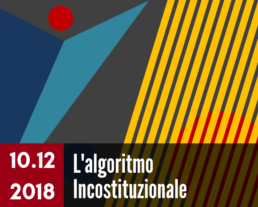The Unconstitutional Algorithm: Artificial Intelligenceand the Future of Fundamental freedoms
Contemporary A.I. is powered by entirely new statistical methods and fuelled by a large amount of data, known as Big Data. Big data and machine learning impacts on business as well as on other several aspects of society, are prompting challenging shifts in decision-making processes, legal one included as some recent cases demonstrated.
An increasing role it is played by so called “predictive algorithms”, sort of contemporary oracles able to predict accurately the future but never saying why. In the lecture, I argue that constitutional law – if it wants to keep its own aim, that is regulating powers in order to protect freedom – must reflect on when and how to limit the asymmetry of power inevitably caused by differences in capability of computational power and data availability and on the discriminatory outcomes produced by decisions taken relying on biased algorithms.
By presenting some recent cases, I will highlight some critical aspects of the application of AI on judicial and administrative decisions with a particular focus on the problem of training bias. I’ll conclude reflecting on the radical transformations that are moving ahead at full speed, showcasing the main challenges that only through interdisciplinary approaches can be effectively tackled and outlining some of the fundamental principles of the “new constitutional law of the cybernetic era”
Speaker: Andrea Simoncini, University of Firenze
Date: 07/12/2018 12.30. Aula A, Physics and Astronomy Dept.

